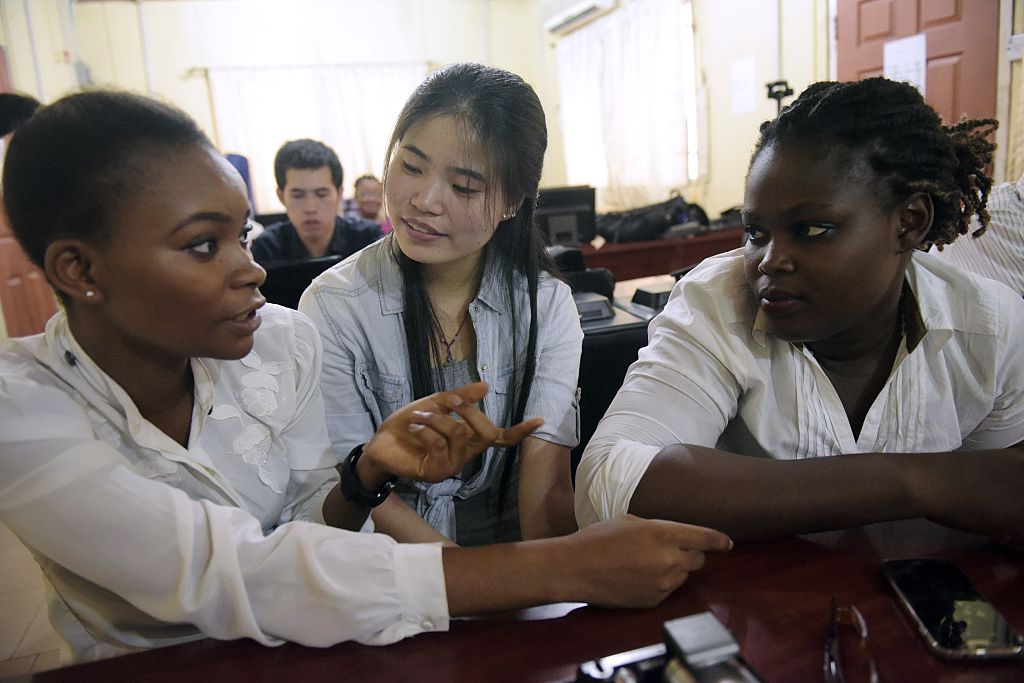ADF STAFF
China’s United Front operation is a continentwide campaign using African elites, media figures, Chinese expatriates, and cross-cultural institutions to cultivate a favorable view of China and its policies. It’s also a campaign that polling suggests might be failing in its mission.
United Front relies on public figures such as former Tanzania Prime Minister Salim Ahmed Salim, a longtime supporter of China, who chairs the Tanzania China Friendship Promotion Association. Along with government elites, United Front targets influential media figures, whom Chinese authorities describe as “borrowed mouths,” to spread Chinese propaganda through print, broadcast and online channels.
Chinese authorities expect the estimated 2 million Chinese expatriates living in Africa to participate in United Front through business and social groups that cast Chinese Communist Party (CCP) policies in a good light, Mareike Ohlberg, a senior fellow at the German Marshall Fund, wrote in a report by the National Bureau of Asian Research.
“Overseas Chinese are expected to ‘tell China’s story well,’” Ohlberg wrote in her analysis of the United Front program.
United Front also includes more than 60 Confucius Institutes and about 50 Confucius Classrooms that teach Chinese language and culture.
“Every country in sub-Saharan Africa has at least one United Front organization, and most have many more,” Ohlberg wrote.
At its core, United Front is about building China’s global military and economic power along with its influence on the world stage — all to buttress the authority of the CCP, experts say.
“Very few United Front organizations have direct connections to the CCP. This makes drawing their associations less obvious,” analyst Paul Nantulya wrote recently for the Africa Center for Strategic Studies.
The African portion of United Front, with its emphasis on developing business ties through the Belt and Road Initiative among other projects, supports the party’s promise of continued economic growth and a return of China to great-power status, according to Ohlberg.
China’s United Front work in Africa comes with strings attached, however. A proposal by the Chinese embassy in Kenya to provide financial support to the Nation Media Group was quickly withdrawn when reporters began investigating corruption in the Chinese-financed, Chinese-built Standard Gauge Railway.
China appears to be undercutting its United Front efforts by courting African elites, particularly if the public sees those elites as corrupt, according to Ohlberg.
“Overall, the CCP’s focus on getting superficial statements of praise from elites rather than genuinely trying to win over the wider public or changing undesirable behavior may explain why China has lost in popularity in some countries over the past five years, despite arguably intensifying united front work over the same period,” Ohlberg wrote.
United Front is feeding a popular backlash in the Democratic Republic of the Congo, Ghana, and Zambia, where residents complain about favoritism toward Chinese businesses, corruption, and conflicts between workers and Chinese managers.
Officially, African countries remain among China’s strongest supporters, according to the Pew Research Center. However, polling by Afrobarometer shows that favorable views of China across the continent are falling. Between 2015 and 2020, favorable views of China dropped from 75% to 57% in Botswana, from 79% to 56% in Gabon, from 76% to 65% in Kenya, and from 66% to 48% in Namibia.
“Overall, efforts to improve China’s image with the general population do not seem to be very successful in countries where China is unpopular,” Ohlberg wrote.


1 Comment
I think the world should be in unity and the entire continents at large, I mean let there be peace all around the world. Thanks